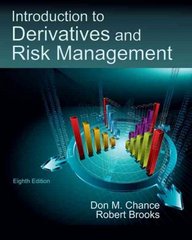Question
Cost of equity: SML.Stan is expanding his business and will sell common stock for the needed funds. If the currentrisk-free rate is 2.4% and the
Cost of equity: SML.Stan is expanding his business and will sell common stock for the needed funds. If the currentrisk-free rate is
2.4%
and the expected market return is
12.1%,
the cost of equity for Stan is
a.
8.12%
if the beta of the stock is
0.59.
b.
10.74%
if the beta of the stock is
0.86.
c.
12.78%
if the beta of the stock is
1.07.
d.
15.11%
if the beta of the stock is
1.31.
Suppose Stan had to delay the sale of the common stock for six months. When he finally did sell the stock, the risk-free rate had fallen to
1.4%,
but the expected return on the market had risen to
13.1%.
What was the effect on the cost of equity by waiting six months, using the four different betas? What do you notice about the increases in the cost of equity as beta increases?
Step by Step Solution
There are 3 Steps involved in it
Step: 1

Get Instant Access to Expert-Tailored Solutions
See step-by-step solutions with expert insights and AI powered tools for academic success
Step: 2

Step: 3

Ace Your Homework with AI
Get the answers you need in no time with our AI-driven, step-by-step assistance
Get Started


